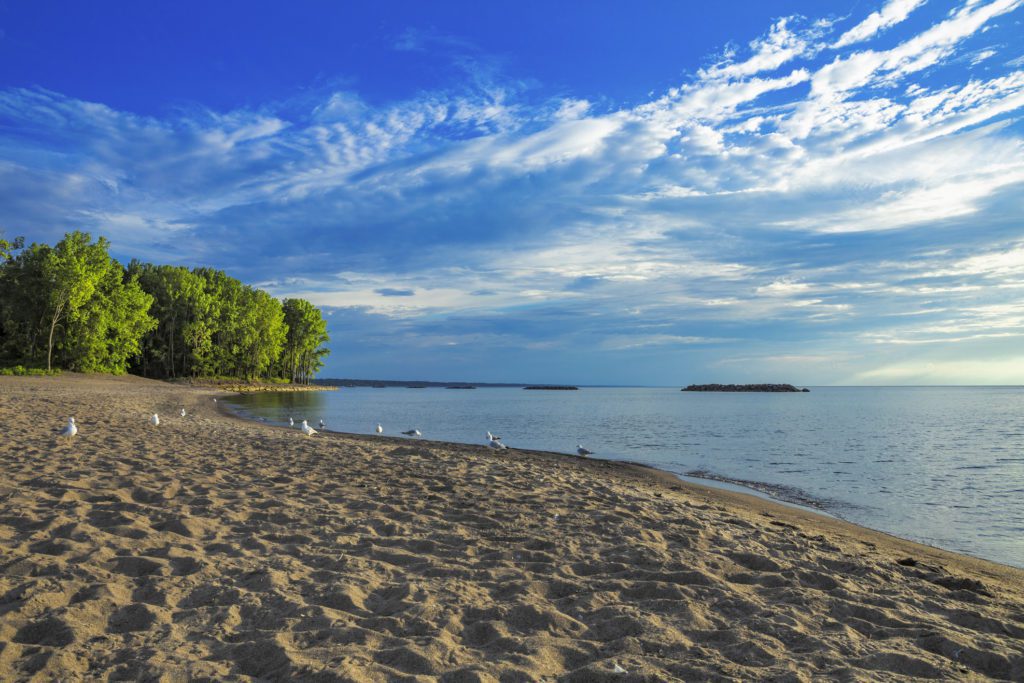A proposal by the city of Waukesha, Wisconsin could cause a damaging ripple effect across both the Canadian and American sides of the Great Lakes basin, if it gets the go ahead. And the Ontario and Quebec governments need to get involved before it’s too late.
The city wants to divert 10.1 million gallons of water, the equivalent of almost fifteen Olympic sized swimming pools, from Lake Michigan to Waukesha daily.
The Great Lakes–St. Lawrence River Basin Water Resources Compact (Compact) and the Great Lakes–St. Lawrence River Basin Sustainable Water Resources Agreement (Agreement) prohibits diversions with exeptions being granted for communities that straddle the watershed divide, such as Waukesha, provided that they meet a very strict list of criteria. Waukesha is a test case and would set a precedent for future exemptions.
Though the municipality claims that the diversion cannot be avoided, an independent report shows that Waukesha can meet its drinking water needs at a lower cost than drawing from the Great Lakes. A reasonable supply alternative is available, even more reason why the proposed diversion should be rejected.
Other Great Lakes jurisdictions, including Ontario and Quebec, should be concerned that Waukesha’s proposal is not a last resort. Currently, at least eight other communities are already seeking or would have the potential to follow Waukesha’s lead in seeking to divert water. In short, if the exemption is granted in Waukesha’s case, it could weaken the Compact’s ability to protect the Great Lakes.
What is the “Agreement” or “Compact” about?
In 2005, eight Great Lakes Governors of the U.S. states of Illinois, Indiana, Michigan, Minnesota, New York, Ohio, Pennsylvania and Wisconsin and the Premiers of Ontario and Quebec signed the Great Lakes-St. Lawrence River Basin Sustainable Water Resources Agreement. The non-binding agreement, created a Regional Body, and a framework for deciding on water quantity issues ranging from conservation, the implications of climate change and the possibility of water diversions. As members of the regional body, Ontario and Quebec have the right to review the application. However, the Compact Council, which is made up of eight Great Lakes Governors who signed the Compact, have the authority to either approve or deny the application.
The Compact prohibits water from being pumped beyond the Great Lakes Basin. However, given the approval of the Great Lakes governors, it allows water to be used in counties that straddle the basin divide. Waukesha’s request will set a precedent for future decisions because the city itself is outside of the Great Lakes basin, though it is in a County that straddles the groundwater divide.
What can Quebec and Ontario Do?
If we are going to avoid a slippery slope, then the decision on the diversion needs to be grounded in science and all alternatives need to be ruled out. Although Ontario and Quebec don’t have the power to deny the application, they can still study the diversion and submit comments to the compact.
So we are asking Ontario and Quebec to:
- Conduct their own independent review process and openly share findings;
- Give the public more opportunities to comment, for example by holding public hearings
What you can do
Have your say, and help get the review of this precedent setting diversion proposal right!
You can submit comments online and in writing beginning January 12 through the end of the public comment period on March 14. Learn more at: www.waukeshadiversion.org/comments.







